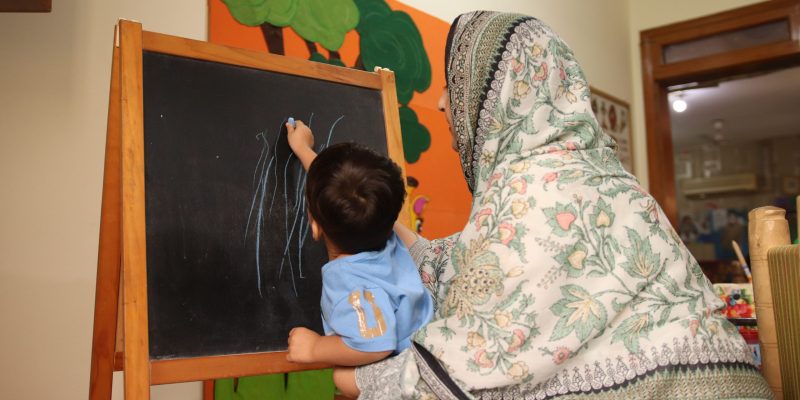Disability is one of the most severe barriers to education across the globe. Without ensuring quality education for children with disabilities, the world will not achieve Sustainable Development Goal 4 – quality education for all.
Early education is the most effective way to give children with disabilities a fair chance to go to school’, learn, and develop the skills they need to thrive and reach their true potential. Like all children, they need quality education to develop their skills and realise their full potential.
Children with disabilities are 5-10 times more likely to be excluded from school than children without disabilities

Globally 240 million children have disabilities and half of them are still out of school.
Parents of children with special needs tend to focus more on surviving daily challenges. Many children are not put into schools due to barriers associated with these hardships and miss out on critical cognitive development in their formative years.
Our experienced and dedicated teachers and therapists take a developmental approach to improve participation in valued daily activities like dressing, feeding, writing, play, and social participation. The Early Childhood Education team assesses the children and prepares customised plans for each child.

AKI’s occupational therapy treatment approach utilizes play-based activities to develop essential motor, cognitive, sensory, and behavioural skills that enhance daily living abilities. We use a wide range of therapeutic equipment and techniques to help children with disabilities achieve their goals. We empower both the child and the family to foster participation and independence in essential activities and occupations. At AKI, adaptive and supportive learning environments are provided to cater to the unique needs of each child.
The overall goal of our early education program is to prepare children with special needs for formal schooling through inclusive education.
- A conductive and caring environment in which the child feels secure, happy and confident.
- Learning through play.
- Teaching necessory life skills.
- Working on the child’s cognitive and fine motor skills.
- Everyday activities using ‘Hand hubs’
- Monitoring the child’s attention and behavioural patterns and arranging appropriate treatment when needed.


